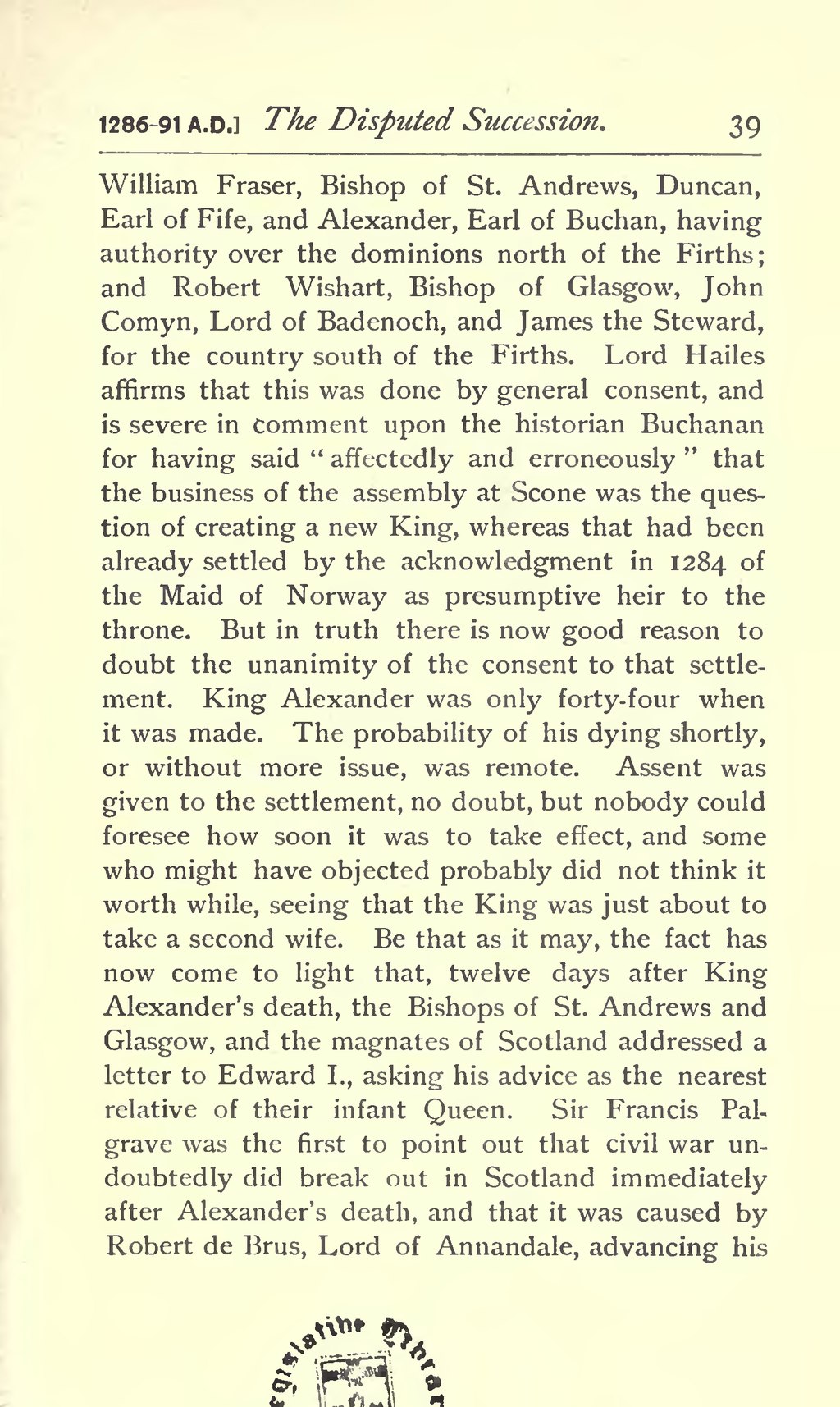William Fraser, Bishop of St. Andrews, Duncan, Earl of Fife, and Alexander, Earl of Buchan, having authority over the dominions north of the Firths; and Robert Wishart, Bishop of Glasgow, John Comyn, Lord of Badenoch, and James the Steward, for the country south of the Firths. Lord Hailes affirms that this was done by general consent, and is severe in comment upon the historian Buchanan for having said "affectedly and erroneously" that the business of the assembly at Scone was the question of creating a new King, whereas that had been already settled by the acknowledgment in 1284 of the Maid of Norway as presumptive heir to the throne. But in truth there is now good reason to doubt the unanimity of the consent to that settlement. King Alexander was only forty-four when it was made. The probability of his dying shortly, or without more issue, was remote. Assent was given to the settlement, no doubt, but nobody could foresee how soon it was to take effect, and some who might have objected probably did not think it worth while, seeing that the King was just about to take a second wife. Be that as it may, the fact has now come to light that, twelve days after King Alexander's death, the Bishops of St. Andrews and Glasgow, and the magnates of Scotland addressed a letter to Edward I., asking his advice as the nearest relative of their infant Queen. Sir Francis Palgrave was the first to point out that civil war undoubtedly did break out in Scotland immediately after Alexander's death, and that it was caused by Robert de Brus, Lord of Annandale, advancing his
Page:Robert the Bruce and the struggle for Scottish independence - 1909.djvu/69
Jump to navigation
Jump to search
This page has been validated.
1286-91 A.D.]
The Disputed Succession.
39
